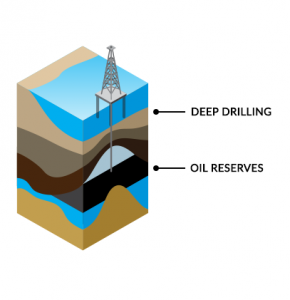All Categories
Featured
Table of Contents
Average Geophysicist Salary in Dalkeith Western Australia 2023
Connect with MBA programs looking for candidates like you. Research study. Connect with master's programs around the country to get an edge over the competitors.

A geophysicist studies various aspects of the earth. According to the U.S. Geological Survey, they study gravity, magnetic, electrical, and seismic activity events. Geophysicists likewise document, assess, and take measurements of geographical functions and anomalies. Enjoy a video to discover what a geophysicist: Geophysicists must make a minimum of a bachelor's degree; however, this is for an entry-level position.
Advanced degrees require more particular studies in the specialty of option. Task potential customers are higher if you have a strong background in computer system science or technology.
What Is Geophysics And What Do Geophysicists Do? in Ascot Western Australia 2022
Access to these chances might be limited depending on where you live; nevertheless, internships or summertime programs with geophysical companies, university geophysics department, or the U.S. Geological Survey can be options. You can discover a list of a list of opportunities on the United States Geological Survey (USGS) sites' Path Programs tab (opens in another link).
If you have yet to finish high school, taking as lots of science and mathematics classes as possible would be a plus. Geophysicists also deal with computers while researching, so computer system courses can likewise be valuable, as mentioned earlier in this post. Many geophysicists concentrate on a location of geophysics. Therefore, the task description would change pending on the specialty.
A geophysicist's tasks can include measuring, tracking, and recording data from different physical properties on earth. Geophysicists often have to take a trip worldwide to take a look at geological events that have actually occurred or may have been forecasted.
Geophysics in Bullsbrook Australia 2020
Jay Wellik, a geophysicist, studies volcanos. His location of proficiency in geophysics is researching why volcanos erupt and what signs there might be that an eruption may happen. He tracks seismic activity and after that follows what takes place in the past, during, and after a volcano appears. Geophysicists typically work full-time hours; nevertheless, they frequently work irregular hours, as discussed previously.

You can discover additional info about Geophysicists in addition to additional instructional materials on the U.S. Geological Survey website (links open in a brand-new window). Laura Stern, of the U.S. Geological Study at the Gas Hydrates Laboratory in Menlo Park, California: We make a variety of different hydrates in the lab.
We likewise make co2 hydrate, ethane hydrate, lp, a number of different structures. Liquid nitrogen is extremely cold. It's about 100 degrees chillier than the temperature at which these hydrate samples would dissociate, when they would decay to ice plus gas on the tabletop. In here we have a little piece of methane hydrate.
Geophysical Prospecting in Balcatta Western Australia 2023
The samples we make, their polycrystalline. They look like snow, it appears like compressed snow but truthfully, it does contain gas inside. Take a little piece off here and as it heats up, you'll begin to see it pop. It's reverting to ice plus gas and after that as the ice would melt as it continues to warm, it will end up being water plus gas.
My name is Steve Kirby, I'm a Geophysicist here at the U.S. Geological Study in Menlo Park. I deal with Laura Stern who is also a Geophysicist in this lab that adheres towards the examination of planetary ices and gas hydrates. Gas hydrates in nature occur in very remote places and they are really intricate with the interactions and conditions that they form under and samples that are brought up are under some sort of alternation or decomposition.
This is an unusual laboratory and there are only a handful of them worldwide and we are extremely fortunate to be here at the Geological Survey and to have the chance of dealing with them. Bureau of Labor Data, U.S. Department of Labor, Occupational Outlook Handbook, Geoscientists. National Center for O * Internet Development.
Geophysical And Geotechnical Assessment in Glendalough WA 2023
This video was produced by the federal government for the U.S. Geological Study. The USGS Gas Hydrates Laboratory is moneyed by the Department of Energy and the USGS Gas Hydrates Task.
Latest Posts
Geophysical Survey - Salisbury Archaeology in South Guildford Aus 2021
Geophysical Survey in Yangebup Aus 2022
Working As A Geophysicist And Oceanographer In Canada in Singleton Aus 2022